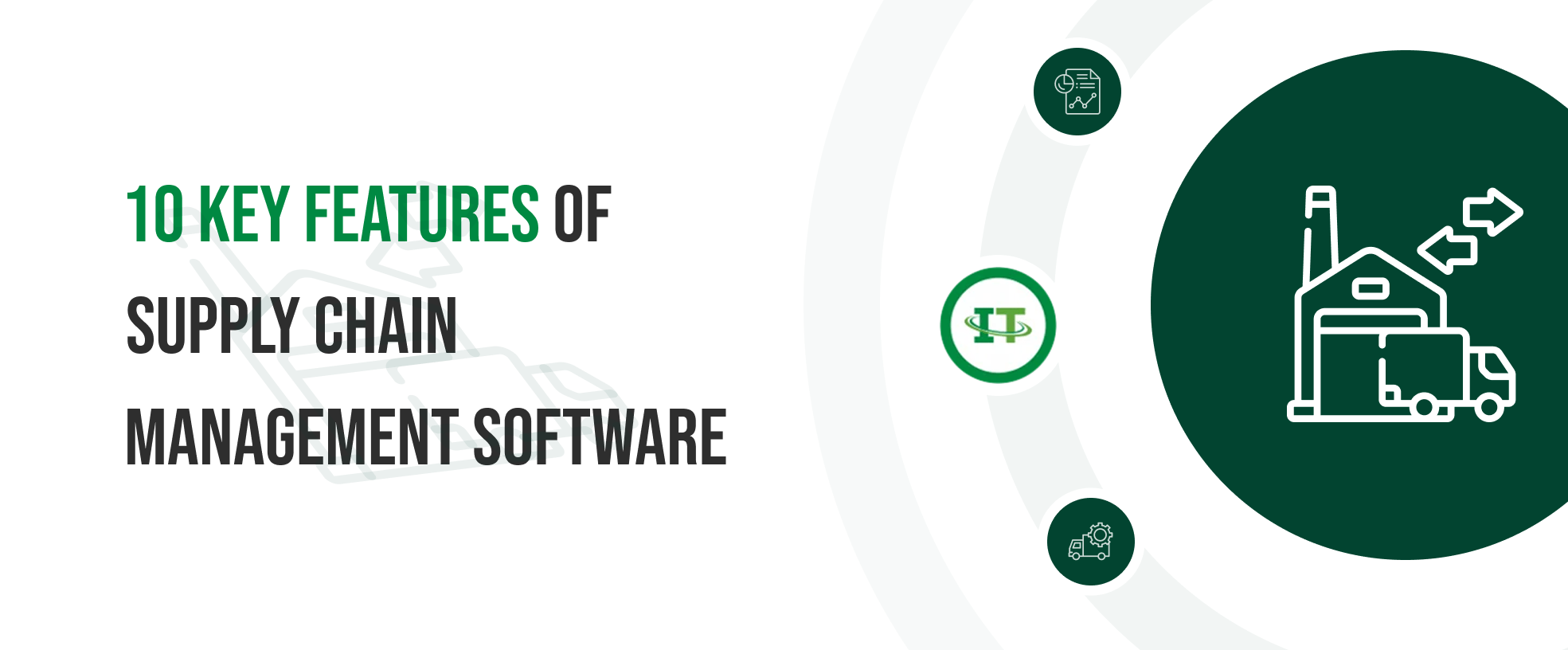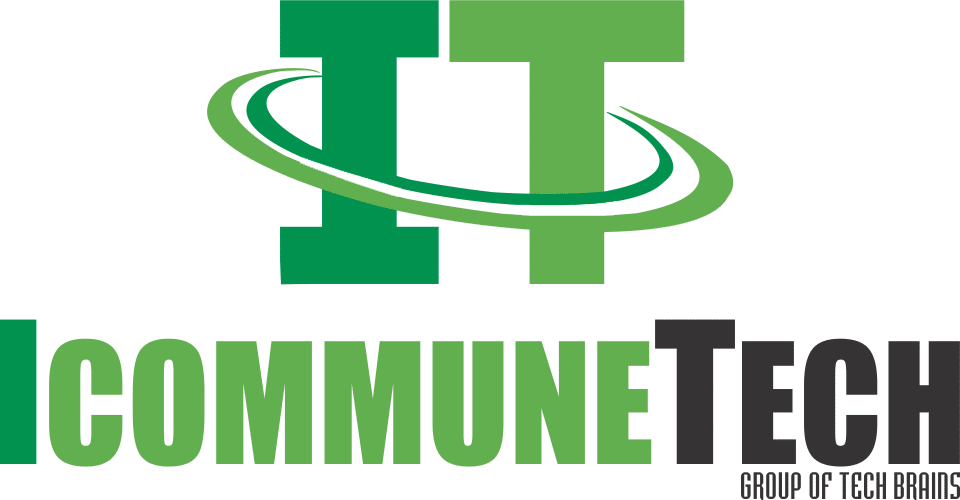What Are The Key Features of Supply Chain Management Software?

Does the software you use have all these key features of Supply Chain Management Software? Check out!!
Supply Chain Management software helps with major operations such as planning, executing, organizing, and streamlining various supply chain functions. This article discusses the key features of supply chain management software that make it a must-have tool for all logistics businesses.
What Will We Cover?
- Top Features of Supply Chain Management Software
- 1. Inventory Management
- 2. Logistics and Transportation Management
- 3. Demand Forecasting and Planning
- 4. Supplier Collaboration
- 5. Warehouse Management
- 6. Order and Billing Management
- 7. Analytics And Reporting
- 8. Cloud-Based Access
- 9. Supply Chain Finance
- 10. Integration Capabilities
What is Supply Chain Management (SCM) Software?
Supply Chain Management (SCM) Software is a set of digital tools that plan, streamline, implement, and execute the various business operations of the supply chain to satisfy customers and increase operational efficiency.
Due to the growing complexity of supply chain management, advanced software has become necessary for improving overall efficiency, saving costs, and increasing collaboration among distributors, retailers, and manufacturers. Certain supply chain management software features make it a powerful tool for the supply chain operations.
Let us move on to explore the top 10 key features of supply chain management:
Top 10 Features of Supply Chain Management Software
Simply put, Supply Chain Management (SCM) Software is like a high-performance automobile, and its features are the essential auto parts that keep it running smoothly without hassles. These SCM features ensure that the goods move seamlessly without effort.
Let us explore in detail 10 essential supply chain management software features, such as inventory control, warehouse management, and data analytics, to help you understand their importance.
1. Inventory Management
The inventory management feature of Supply Chain Management software maintains just the right stocks and helps users make smarter decisions. Features like AI integrated logistics, automated reordering, etc., make real-time inventory tracking and complete control over it possible. Accurate inventory management maintains optimum inventory levels and helps businesses optimize storage costs, meet delivery timelines, and improve efficiency.
In the competitive landscape, smart inventory management by the logistics business helps it respond quickly to market changes or disruptions.
- Stock Tracking: Monitoring inventory levels in real time prevents under/over stocks, helps businesses streamline their operations, and enables better decisions based on data visibility across different locations.
- Reorder Automation: Automatically trigger the purchase orders when the stock levels reach the preset threshold. This reduces manual tasks and ensures that the stocks are replenished on time.
2. Logistics and Transportation Management
Logistics and transportation management is one of the most important features of supply chain management software that ensures your business benefits from network optimization to the fullest extent possible. By streamlining the movement of goods, companies can achieve better operational efficiency.
The right SCM software can integrate all the key logistics functions, such as order management, warehouse management, stock level optimization, etc. The software helps in several ways; it identifies any choke points in the supply chain causing delays and inefficiencies.
- Route Optimization: Planning and optimizing the delivery paths with the help of real-time data reduces delays and transportation costs, improves efficiency, and saves fuel consumption.
- Shipment Tracking: Track the shipments in real time to ensure better transparency, no delivery issues, and increased customer trust. When goods are monitored in transit, any anomaly can be checked easily.
3. Demand Forecasting and Planning
With this SCM software feature, valuable analytical data can be obtained for the business, helping to improve stock management, mitigate risks, and more. AI and IoT enabled logistics help companies predict demand, make better decisions based on those demands, and align business operations accordingly.
Supply chain management software’s demand forecasting and planning features predict market trends, leading to better and more accurate decision-making.
- Predictive Analytics: AI can help forecast demand trends and optimize inventory based on market shifts. With data-driven insights, users can make smarter and better decisions.
- Scenario Planning: “What if” scenarios can be prepared for disruptions, market demand changes, etc. When potential outcomes are examined, a proper strategy can be framed.
4. Supplier Collaboration
The supplier collaboration feature uses tools for managing contracts, communication, and relationships across supplier networks. Collaboration portals also help improve transparency and streamline business interactions.
A strong supplier collaboration does not only improve workflow efficiency, but also supports long-term flexibility in the supply chain. With real-time coordination and data-driven decisions, businesses can properly manage any kind of disruptions, decrease procurement risks, and build more strategic and stronger partnerships.
- Supplier Portals: Supplier portals are centralized platforms for suppliers to submit documents, track orders, and communicate with each other.
- Performance Tracking: Monitoring supplier metrics like delivery times, quality, and compliance ensures consistent top quality. Data-driven decisions also allow for better responses.
5. Warehouse Management
Warehouse management is an essential feature of supply chain management. It increases accuracy, speeds up the order fulfillment process, and reduces operational costs.
That’s why warehouse management lies at the core of the supply chain. Whether it is warehouse automation with the help of the latest AI tools or organizing storage, streamlining, picking, packing, and managing workflow, warehouse management plays a key role in supply chain management.
- Automated Picking: The latest robotic systems for warehouse management can select items quickly without human intervention. This process increases speed and accuracy, reduces errors, and more.
- Space Optimization: Designing a better and well-optimized warehouse increases its capacity, reduces waste, and enables faster inventory handling, which leads to better space management.
6. Order and Billing Management
The advanced tools help customers process orders and manage their invoices quickly and efficiently. This ensures that the billing process is highly accurate and that orders are fulfilled to the customers’ satisfaction.
Not only this, the order and billing management feature of supply chain management software automates the entire lifecycle of the products, ensures that the bills, taxes etc. are complied with.
- Order Processing: Streamlining the workflow from order entry to the final delivery to minimize errors and accelerate turnaround times.
- Invoice Automation: Generate the invoices automatically based on the order data. This saves much time and manual work and increases accuracy, too.
7. Analytics and Reporting
One of the essential features of SCM software is that users can gain valuable insights through comprehensive data and advanced reports. This is important as businesses can easily make data-driven decisions.
The analytics and reporting features of supply chain management software help transform the raw supply chain data into actionable insights. This, in turn, helps businesses monitor their performance and identify inefficiencies so that data-driven decisions can be made.
- Custom Reports: A tailored report for specific Key Performance Indicators helps you track the latest trends and measure the latest outcomes accurately.
- Real-time Dashboards: Visualize the live data all across the supply chain and respond to the issues on time with the latest insights.
8. Cloud-based Access
Gain access to the supply chain tools from anywhere across the world. Cloud platforms enable businesses to stay connected, coordinate across teams, and manage supply chain operations without any physical infrastructure.
Advanced cloud-based tools offer automatic updates and a high level of scalability for businesses’ growing needs. Using cloud-based infrastructure also helps businesses be agile and always move forward.
- Remote Accessibility: Users can work from anywhere with internet access, and cloud-based access helps businesses maintain continuity no matter where they are.
- Scalability: Easily adapt to the systems for handling business growth and scale up without disruptions in the ongoing operations.
9. Supply Chain Finance
Manage payments, all the supply chain transactions, and the cost tracking efficiently. With SCM software’s Supply Chain finance feature, businesses can have better financial visibility.
The SCM software enables close co-ordination between the suppliers, financial institutions etc. for streamlining constant cash flow.
- Payment Automation: Automating routine supplier payments can also speed up transactions and avoid late fees.
- Cost Tracking: Manage payments, all supply chain transactions, and cost tracking in real time, which helps companies stay on budget and improve their financial control.
10. Integration Capabilities
Supply Chain Management Software connects with the CRM, ERP, and a wide range of other systems to eliminate silos and synchronize the workflows.
Integrating supply chain management software into your business operations can help you overcome several challenges and problems of supply chain management.
- ERP Integration: Sync with the enterprise-grade system for centralizing data, enhancing efficiency, and streamlining business operations.
- API Support: Using APIs enables real-time communication and the best system compatibility.
These SCM software features optimize supply chain operations at every step, from procurement to delivery, resulting in efficiency, cost management, and productivity. Let us summarize the entire article in short now.
Final Thoughts
The key features of Supply Chain Management software make it an all-powerful and practical supply chain solution. It is more like a necessity than a choice for better efficiency, cost savings, and more. But it is essential to choose the software very carefully. Software with a wide range of robust features can give you the best value.
Key Takeaways:
- Supply Chain Management (SCM) software helps businesses streamline operations, enhance efficiency, and significantly reduce operational costs.
- Choosing the right SCM tool depends on your industry, operational requirements, etc.
- SCM software offers many benefits, like real-time tracking, inventory optimization, and demand forecasting.
- Implementing the right SCM software improves overall efficiency and productivity.
Frequently Asked Questions (FAQs)
Whatever your doubts about the features of supply chain management SCM software, let us know. A few common queries are resolved here.
1. What is supply chain management software?
Supply Chain Management software is a complete digital solution helping businesses manage the flow of goods, data, and finances across the supply chain.
2. What are the top supply chain management software?
Some of the best SCM software solutions are SAP SCM, Manhattan Associates, CommuteLogix, Oracle SCM Cloud, and more. Each offers unique benefits, from planning to logistics management, execution, streamlining, and more.
3. What are the benefits of using supply chain management software?
SCM software has a wide range of benefits. It increases operational efficiency, cuts down on costs, improves forecasting, and leads to better customer relationship management.
4. How many types of software are used in supply chain management?
There are several different types of SCM software used in the supply chain, including procurement, logistics, and warehouse management.
5. What are the functions of supply chain management?
The supply chain management has multiple functions which include planning, sourcing, production, logistics, and reverse logistics, which ensure a smooth supply flow.
Increase Your Supply Chain Efficiency With iCommuneTech
iCommuneTech is a leading software solution provider that delivers tailored solutions to the competitive industry. Get in Touch today and optimize your supply chain with the all-in-one solution CommuteLogix.
Irshad Pathan

Web Development Expert
Irshad is a senior technical expert at iCommuneTech. He manages the iCommuneTech's Web Development Team, and has hands-on expertise in web development, Laravel development, Logistics, fleet management, and Supply Chain Management. He mentors the in-house team and enjoys describing his experience in words.
Read More Insights By Irshad →